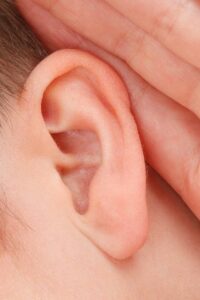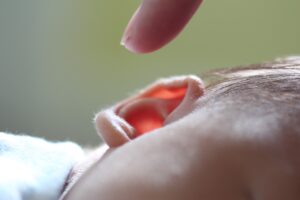Misophonia
What is misophonia?
Misophonia, which literally translates to “hatred of sound,” is a rare chronic condition that causes affected individuals to have intense, but involuntary, emotional experiences to specific sounds. These emotional reactions can be either mild or very strong, and include anything from disgust and rage, to anxiety, fear, or other serious emotional distress with violence and suicidal thoughts. Regardless, overall, these experiences greatly limit the social and professional lives of the sufferers.What causes misophonia?
The exact cause of misophonia is unknown, but scientists know that the condition is not a problem with the ears, but rather, related to how sound affects the brain and triggers automatic responses in the body. The specific trigger stimuli for the reactions are usually repetitive and/or social oral sounds that are produced by another person, such as chewing, pen clicking, tapping, and lip smacking, and from which the affected individual cannot escape.What are the symptoms of misophonia?
The symptoms of misophonia usually come on quickly around the ages of 9 and 13. These come on in episodes, and may be described as any of the following:- Aggression towards the route of the stimulus
- Fear
- Irritation or rage
- Disgust
- Depression
- Social isolation
- Feelings of skin crawling
- Suicidal thoughts
How is misophonia diagnosed?
It is usually difficult to diagnose misophonia because the disorder is oftentimes mistaken for anxiety, bipolar, or obsessive-compulsive disorder. Adding to this difficulty is the fact that misophonia is not currently recognized as a mental illness in the DSM-5 (the standard classification of mental disorders used by mental health professionals in the U.S.). With that being said, a compassionate healthcare provider can provide a diagnosis given a thorough clinical examination and a detailed patient review. Ruling out other hearing disorders is a key part of this diagnosis.What are the available treatments for misophonia?
Even though misophonia affects daily life, it can be managed by avoiding the trigger sound or by blocking the reflex that occurs. This can be achieved using sound therapy combined with counseling, hearing plugs or aids, antidepressant medication, and an active lifestyle to manage stress. In particular, Cognitive Behavioral therapy, or CBT, and Progressive Muscle Relaxation have been successful when applied to misophonia. There are more than a dozen misophonia clinics around the United States that can offer a support system to people affected by the condition.Where can I find more information on misophonia?
Misophonia Articles


Sensitivity to Certain Sounds May Mean You Have Misophonia
Alyssa Stevens
August 1, 2022
Read More »










